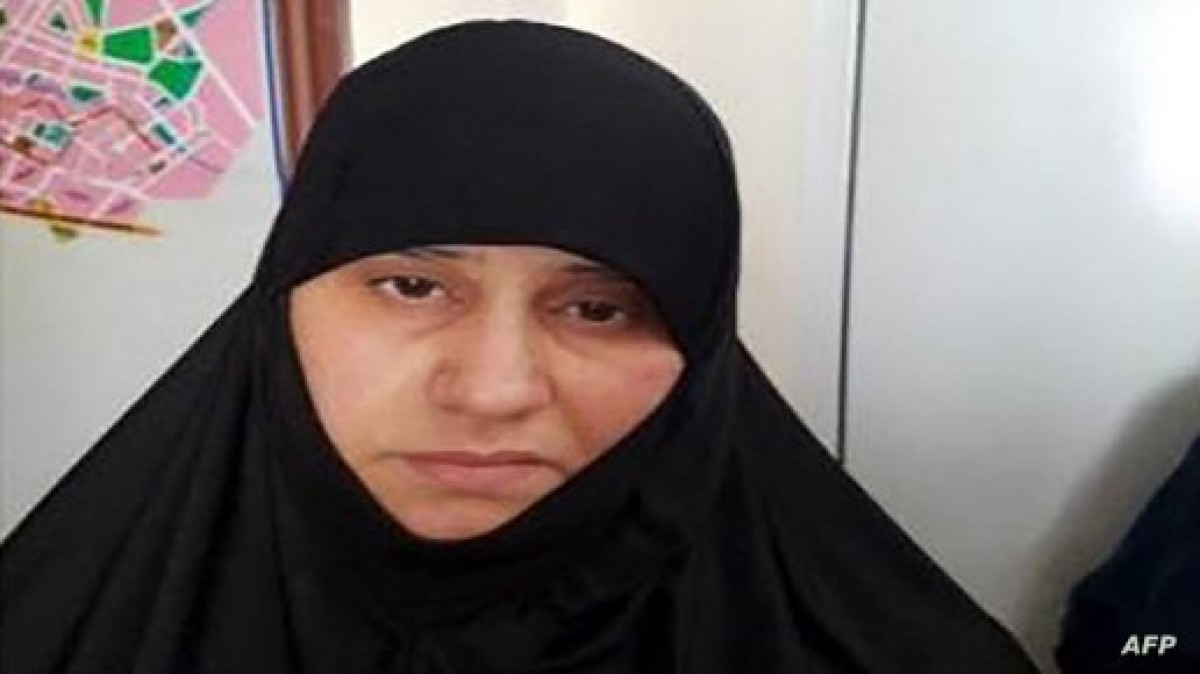Iraq recovers "Al-Baghdadi's family" and investigates them to uncover ISIS secrets


The Iraqi judicial authorities announced, on Thursday, the interrogation of the “family” of the former leader of the Islamic State, Abu Bakr al-Baghdadi, explaining that they had been recovered from outside Iraq.
The statement published on the website of the Iraqi Supreme Judicial Council does not specify the number of Al-Baghdadi family members who were arrested or their identity, nor from which country they were recovered.
But a judicial source told Agence France-Presse that “the intelligence service, in cooperation with the Turkish authorities, “recovered Abu Bakr al-Baghdadi’s wife and her children,” adding that “she was arrested in Turkey.”8
The statement stated that the judicial authorities were able to “recover the family of the terrorist criminal Abu Bakr al-Baghdadi,” “as part of their plan to recover those accused of terrorism cases fleeing outside Iraq.”
The statement continued, “Under the direct supervision of the competent judge in the First Karkh Investigation Court, the family of the terrorist criminal Abu Bakr al-Baghdadi was arrested and their statements were recorded, while investigations are still continuing with them to uncover the most important secrets of the ISIS terrorist gangs.”
>In November 2019, Turkey announced the arrest of the widow of Abu Bakr al-Baghdadi, along with ten other people, including the daughter of the former leader of the organization.
A Turkish official said at the time that she was Al-Baghdadi’s “first wife,” and she was arrested in June 2018, in the Turkish province of Hatay, bordering Syria.
According to the official, Al-Baghdadi’s wife “provided numerous information about Al-Baghdadi and the internal work of ISIS.”
Then the Turkish media said that this wife’s name is Asma Fawzi Muhammad al-Kubaisi, and his daughter’s name is Laila.
In October 2019, the United States announced the killing of Al-Baghdadi in a night strike launched in northwestern Syria, kilometers from the border with Turkey.
After controlling large areas in Syria and Iraq in 2014, the extremist organization suffered successive defeats in both countries until it was stripped of all areas of its control in 2019.
Iraq declared its victory over the organization in late 2017, but it still maintains some cells in remote and distant areas in the north of the country, launching attacks from time to time against the army and security forces.
A UN report published in July stated that “counter-terrorism operations carried out by Iraqi forces continued to limit the activities of ISIS, which nevertheless maintained a low level of insurgency.”
He added that the jihadists' "operations" were "limited to rural areas, while attacks in urban centers were less frequent."
According to the report, the main structure of ISIS “still commands 5,000 to 7,000 individuals throughout Iraq and the Syrian Arab Republic, most of whom are fighters.”